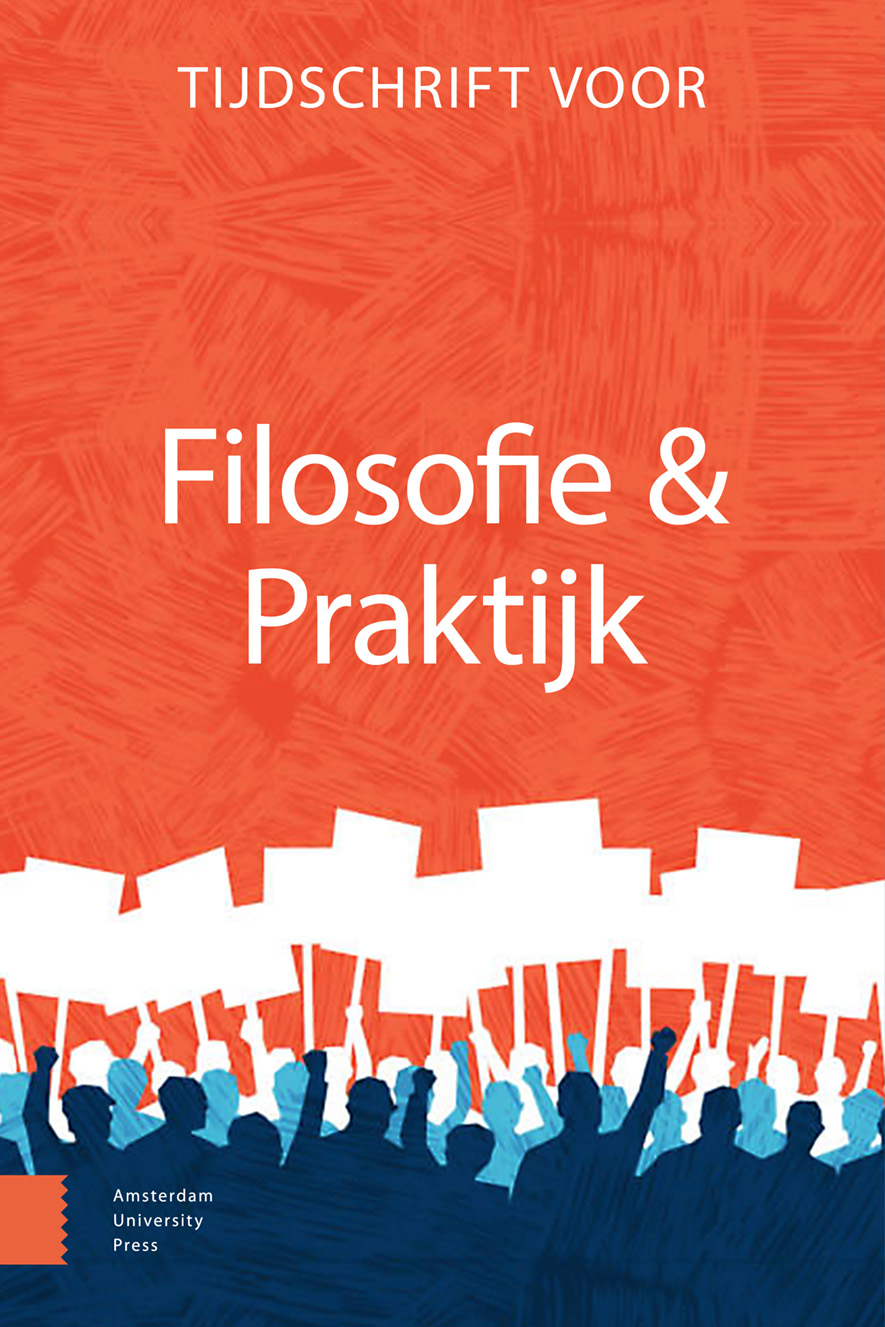- Home
- A-Z Publicaties
- Filosofie & Praktijk
- Previous Issues
- Volume 44, Issue 1, 2023
Filosofie & Praktijk - Volume 44, Issue 1, 2023
Volume 44, Issue 1, 2023
- Artikelen
-
-
-
Van homo ludens naar homo oeconomicus
Meer MinderDoor René BoomkensAbstractContrary to the received view that the success of neoliberalism was mainly the result of a radical change in the economic policy of Western welfare states in the seventies and eighties of the 20th century, this success can be understood as the product of a long-term, slow, and largely unwitnessed cultural transformation. In this process the homo ludens of the counterculture of the sixties gradually changed into the homo oeconomicus of neoliberalism, political democracy was replaced by market democracy, and our notion of freedom as guaranteed by the state and realized in the public sphere substituted by individual freedom from the state. This new freedom redefines the individual as human capital in a constant condition of competitiveness and precarity.
-
-
-
Menno ter Braak en de democratie
Meer MinderDoor Sjaak KoenisAbstractIn 1937 the Dutch publicist Menno ter Braak wrote a landmark article about national socialism (recently translated in English: “National Socialism as a Doctrine of Rancour1”). The recent republication of his article in the Netherlands stimulated a debate about the democratic credentials of Ter Braak. Contrary to what most commentators claim, Sjaak Koenis argues that even though Ter Braak was under the influence of conservative thinkers and skeptical about what he called ‘parliamentarism’, he did believe in the value of democracy. Moreover, his ideas about how democracy and resentment are intertwined, are today even more relevant to our debate about democracy than they were in the 1930s.
-
-
-
En/En. Tegen ideologische begrenzing van academische vrijheid
Meer MinderDoor Jonathan SoeharnoAbstractIn 2021 the Royal Netherlands Academy of Sciences (Koninklijke Nederlandse Academie van Wetenschappen, KNAW) published the report “Academic Freedom in the Netherlands”. That report explicitly creates room for ideological limitations on academic freedom. I argue that this is at odds with the critical nature of science. Ideological limitations at the academy can foster a culture of (self)censorship. Not just among individual researchers, but also at a more systemic level. The core of my argument is that ideology and science can coexist (and/and), but that ideological limitation ought not to exist (and/or).
-
-
-
Minima Philosophica: Vrije keuze rond het levenseinde
Meer MinderDoor Ton VinkAbstractThe verdict in the court case against the Dutch state in order to decriminalise assisted suicide for people who wish to end their lives, is no surprise. The practical realization of the right to self-determination over one’s end of life, including the right to be able to receive or provide any necessary assistance, is only possible when accompanied by an awareness of a duty to use that right responsibly. Removing the penalization of providing assistance with this self-determination can therefore only be effected if it is accompanied by a careful practice of such assistance.
-
- Articles
-
-
-
Introducing Apartheid Studies (AS): A new forensicinductive philosophy for abolishing harm
Meer MinderDoor Nyasha MbotiAbstractThis article introduces the new field of study known as Apartheid Studies (AS), locating it as a forensic inductive philosophy of liberation from the global south. I map how AS began and where it is going, and introduce some of its key theoretical and methodological constructs. This way we establish that apartheid was neither limited to South Africa nor abolished in 1994. Instead, apartheid is a superposed, fungible, metamorphosing global problem that exists to this day wherever human beings are oppressed and unjustly treated by being invoiced differential Rates of Oppression (ROp). Due to this, apartheid is reproduced not as something harmful but, rather, as a mere interface and as just any other service (apartheid as a service – AaaS). The article proposes that a systematic, forensic-inductive understanding of the ROp is an effective antidote against apartheid harm wherever it is found.
-
-
- Artikelen
-
-
-
Restitutie van koloniale collecties volgens de ethiek van Jos van Beurden
Meer MinderAuteurs: Jos van Beurden & Cees MarisAbstractRestitution of colonial collections according to Jos van Beurden’s ethics. The Western world is increasingly recognizing its unjust colonial past. Looted art and other illegitimately obtained cultural objects should be returned to their countries of origin. Jos van Beurden advocates a new ethics of restitution. In an interview, he addresses questions of justice and casuistry, such as: What characterizes the injustice of colonial looting? How do we know whether progress is made in the return-dossier? Should scientific finds like the Java man also be returned? To whom should Māori heads be returned? Are there good reasons to keep certain objects for Dutch museums? How should they be exhibited? Is the current return policy sufficient?
-
-
- Review-Artikel
-
-
-
Over gelukkige winnaars en ongelukkige verliezers
Meer MinderDoor Kees HellingmanAbstractThe present review brings into focus the content of the book’s subtitle: A New Philosophy of Free Will. The author’s stand in this age-old, much discussed and difficult philosophical problem amounts to the idea of a highly but not wholly determined pattern of a person’s actions. Actions never originate out of the blue but are influenced by many circumstances, such as the person’s inherent character, his education and external factors like good or bad luck. These factors are all beyond the persons control and we should allways be aware of that. It should change our attitude to man’s doings as well as jurisdiction on the whole.
-
-
- Signalementen
-
Most Read This Month


